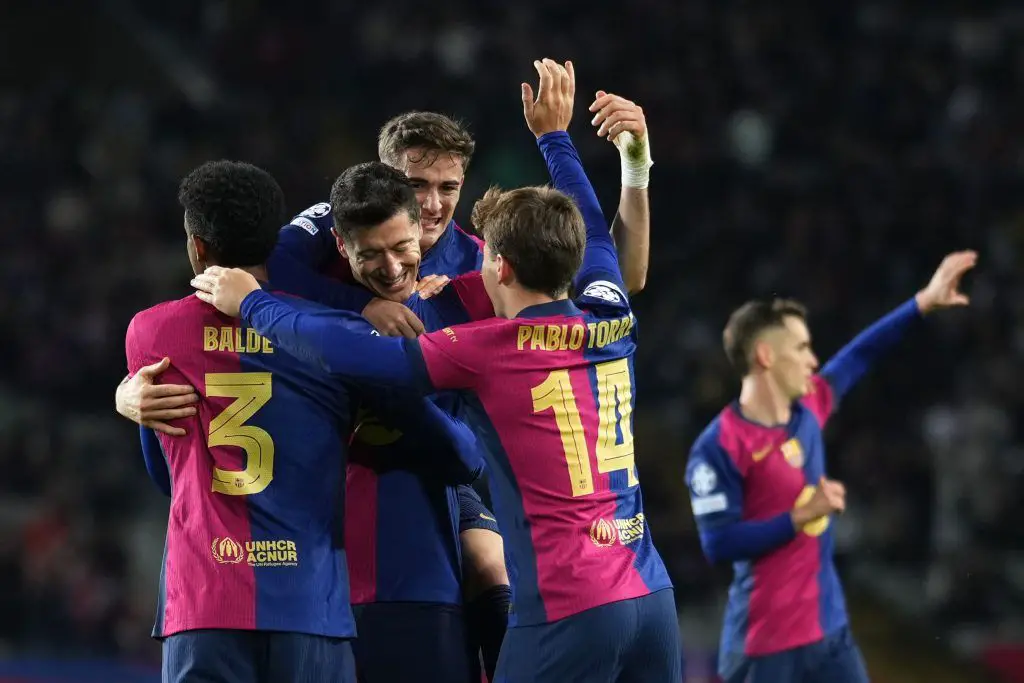World
Game 1 of the World Series Was About More Than Just Its Historic Ending

Like all iconic, indelible plays, the home run seemed to erase all that came before it. The first-pitch fastball swung the fate of the game and secured the eudaimonia of the crowd, and in the moment it landed in the seats in right field, Game 1 of the 2024 World Series became the Freddie Freeman Game. This was the play that defined the night. This was the moment that people will remember.
Which, of course, is only fair. This was the first walk-off grand slam in the history of the World Series. It was a two-out, bottom-of-the-10th, right-off-the-bat no-doubter. Freeman joined only Kirk Gibson (1988) and Joe Carter (1993) in hitting a walk-off home run when trailing in the World Series. Those games are remembered decades later by those names alone, and this one rightfully will be, too. But that almost feels like a shame.
For this game had so much else worth remembering. This series could have easily buckled under the weight of its own hype: New York versus Los Angeles, heavyweight versus heavyweight, Yankees versus Dodgers, Aaron Judge vs. Shohei Ohtani. But this first game delivered in every way it could have. So much of the discussion around this series focused on the history, the money, the cultural influence. And here was something that at once undercut and overwrote all of that. It was a baseball game so damn good the discussion could not possibly focus on anything else. It will be headlined by its final swing, that walk-off from Dodgers first baseman Freeman, a winning hit made all the more dramatic by a badly sprained ankle that had vexed the 2020 National League MVP for weeks. But there was far more here than just that headline.
“We all enjoy baseball, we enjoy the game, we’re all fans of it,” said Dodgers starter Jack Flaherty. “That was just an incredible game from both sides.”
APSTEIN: Freddie Freeman’s Insistence On Playing Through Injury Pays Off
These clubs have played in the World Series more than any other pair in history. Their matchup was discussed and dissected and debated more than any in recent years. But this first game delivered something no one could have even dreamt.
There were fantastic catches and cringe-inducing errors. There was a signature postseason home run from Yankees designated hitter Giancarlo Stanton, which is to say a towering, jaw-dropping mammoth of a moonshot. (The exit velocity was 116.6 mph—harder than any ball hit in the World Series since Statcast began recording in 2015.) There was an eighth-inning comeback that only served to set up a 10th-inning comeback. There was a crucial fan interference call with two outs in the top of the ninth. (A fan reached over the outfield wall to pluck what otherwise would likely have been a hit by Yankees second baseman Gleyber Torres, who was awarded second base, though he was ultimately left stranded there.) There was one absolutely gorgeous if ultimately futile sacrifice bunt. There were somehow multiple instances of intentionally walking a likely Hall of Fame No. 2 hitter to get to a likely Hall of Fame No. 3 hitter. And then, of course, there was the game-winning, never-happened-before, can-you-believe-it grand slam.
SELBE: World Series Game 1 Takeaways: Freddie Freeman Pens Hollywood Sequel
“To see a game like that,” Dodgers reliever Michael Kopech says, “I don’t have the words for it. That was incredible.”
He did more than just see a game like this. Kopech pitched in it: He entered in the top of the ninth, with the game tied, for his first career appearance in the World Series. (The righty got two quick outs before allowing the hard contact that resulted in the interference call.) Yet such was the effect of this game. It could feel like everyone was simply along for the ride. Even the people involved.
“There was some good pitching, some defense, good at-bats, the crowd was into it from pitch one,” said Dodgers manager Dave Roberts. “It was an old-school baseball game.”
VERDUCCI: Nestor Cortes Left to Digest Loss After Aaron Boone’s Questionable Game 1 Move
This was not exactly a traditional pitchers’ duel. But it was as close as one can get in modern postseason baseball. Flaherty carried a scoreless outing into the sixth, faltering at last on the home run to Stanton, ending his night with six strikeouts, five hits and one walk. Yankees ace Gerrit Cole pitched into the seventh and expertly carved his way through a fearsome Dodgers lineup. (The fact that both starters pitched into the sixth was somewhat noteworthy: That did not happen once this October in either the ALCS or NLCS.) This was one key factor of the many that made this game memorable. The starting pitchers felt like central characters. They did not ultimately serve as the biggest stars. But they were on stage long enough to shape the drama and set the stakes.
That gave way an hour later to an ending the players will not soon forget. “I don’t think I’ve ever seen a team stay on the field for 20 minutes after the final play, just to watch it and soak it in with the fans,” says Dodgers reliever Blake Treinen, who’d finished the game for L.A., walking off the mound believing he blew it only to get bailed out by his teammates. “That was the most incredible moment in baseball I’ve seen.”
The sentiment was echoed by players up and down the roster, and by Roberts, too, who has been involved in more than his share of memorable plays: That was the greatest baseball moment I’ve ever seen. It was a credit to Freeman, of course, but it was also a credit to every play that came before him. The final moment could not have brought such joy had the game it ended not been so tense.










/cdn.vox-cdn.com/uploads/chorus_asset/file/24100829/226345_Nest_Doorbell_wired_JTuphy_0006.jpg)